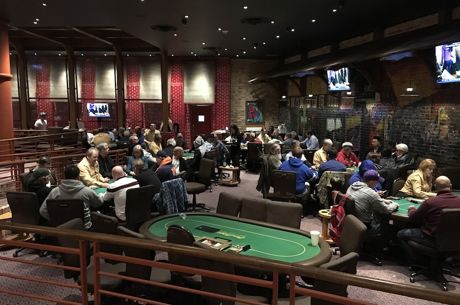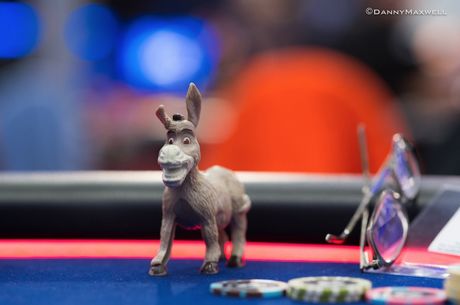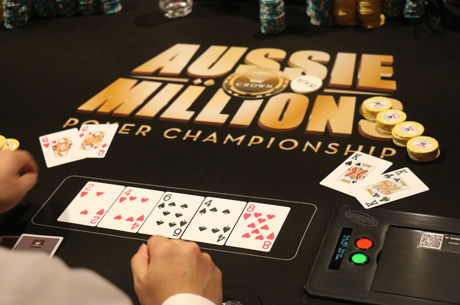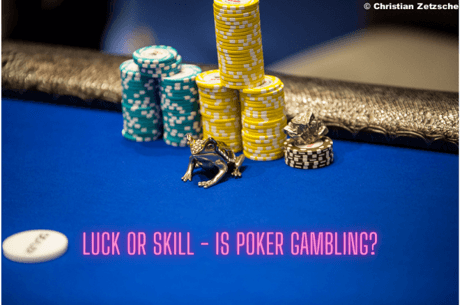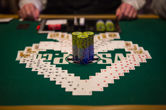Parting Words from a California Cash Game Crusher
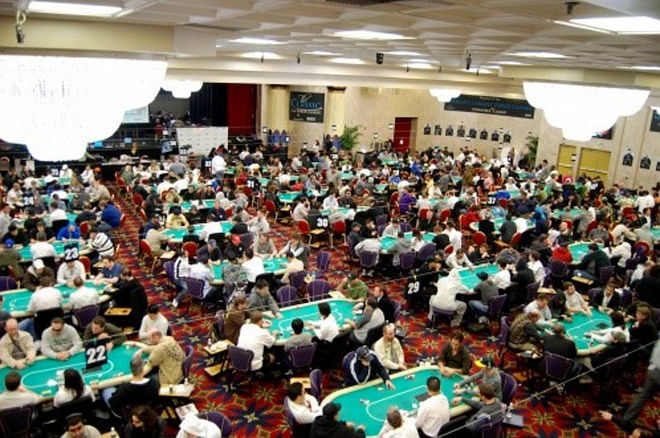
It's rare to have access to the mind of an elite high-stakes pro. But one of Southern California's best players has been remarkably candid in his thread on Two Plus Two, where he posts as "DGAF."
Dozens of accomplished pros have praised DGAF for his strategic insights, his unflinching honesty about the poker world and his ability to create a fun environment at the tables.
"DGAF is, no exaggeration, the greatest of all time at building and maintaining great games," said high-stakes pro Garrett Adelstein. "He is also a hilarious and entertaining dude, while somehow still avoiding being a dick or an egomaniac."
Despite consistent success in live no-limit hold 'em cash games, DGAF is now planning to leave poker and conclude his thread. He recently explained why (in his inimitable style):
Good or bad, boring or riveting, inspirational or sad, my conclusion is the last piece of me I'm prepared to give to 2p2 as 'DGAF,' the anonymous (I REALLY hope to remain anonymous) cautionary tale of a kid with a shitty upbringing (parental neglect and sibling abuse for days), who became an insanely competitive athlete/partier, who after high school became a stone degen/gambler/adventurer/ songwriter, who suddenly wanted to get out of debt/poverty because he was getting married, who got his shit together and jumped on the corporate ladder, who played a ton of poker on the side to supplement his income/satisfy his gambling jones, who learned to crush NLHE at anomalous rates (by working his ass off away from the felt + having some rare attributes), who started playing/crushing the "big games" in '07, who jumped off the corporate ladder and onto the 'poker wheel' for good in '08 (once he was debt free and had a roll), who over the next decade or so became a devoted father of two/prolific traveling poker degen/spewy 2p2 blogger, who continues to crush (at least wrt EV) the 'big games' in new, inventive ways even as the quality of these games continues to nosedive, but who, despite winning 12/12 years overall so far in NLHE for what 99% of the population would consider 'heaps,' is currently sitting on a sizable negative net worth, an out-of-control monthly nut, a pretty significant sports betting leak (a "humongous" leak if you look at the results/not just the –EV of it), a few health issues starting to pop up from too many years 'on the grind,' very few real friends, and a very strong feeling of, 'Man, I need to gtfo of poker ASAP and do something with my life before I get completely swallowed up by it and I go out like Wan Lee, Bobby Hoff, etc.'
You can read the first part of his "conclusion" here. DGAF was also kind enough to answer a few questions for PokerNews.
PokerNews: You've been vocal about creating a fun atmosphere at the tables, especially for recreational players. What should players be doing (or not doing) to create a fun atmosphere?
DGAF: After about a decade of thinking about this, I've decided it's less about being fun than it's about being good for the game. If you are fun or funny that's great, but many poker players are introverts who aren't fun or funny. That doesn't mean they can't be good for the game, though.
If you are someone people like playing with, you are good for the game. If you are someone people don't like playing with, you are bad for the game. Aside from the huge whales who lose a ton — and it's obvious to everyone that they lose a ton — being good or bad for the game has little to do with being a winning or losing player. Poker is too slow and variance is too crazy confusing for people to accurately assess skill levels. All they have to go on really (aside from results, which wash away quickly from our minds) is appearance and behavior.
Most pros are insecure about their abilities — and for good reason; none of us can get a big enough sample of results under similar conditions to really prove anything (to ourselves or others) about how good we are. Because of this, most pros go out of their way to be recognized as "good." They dress like "pros," talk like "pros," act like "pros," play like "pros," etc.
Presenting yourself as a "pro" is the main thing people do that is bad for the game. Those who fuel the games/the biggest losers generally get intimidated and/or put off by "pros" over time, and the result is that they play tighter or they pick up. Those are terrible results obviously, and not at all worth the self-esteem boost that might come with wearing the "pro badge" in my opinion.
What else makes a game good or bad?
Other things people do that are bad for the game include taking too long to make decisions, staring people down to the point of making them uncomfortable, being too quiet (even introverts can talk on occasion), not smiling enough, taking themselves too seriously or being too smug, having poor hygiene, not taking losses well, seat changing too much, not straddling when everyone else is — basically just being nitty or greedy or dirty in any way...
If you do the opposite of all the bad things I've just listed, you will be good for the game. But really it's as simple as just asking yourself, "Do people like playing with me?"
At this point, with poker as fragile as it is (at least in the bigger games where the rake can actually be beat), you literally cannot "be good at poker" anymore without being good for the game. Getting action is too important these days. Doesn't matter if you are technically a poker genius, you can't win any money if no one wants to play with you.
You have written that "a lot of pros take little stock in live reads" and that "some even make fun of the concept." Meanwhile you also say that "being hyper-perceptive is my biggest asset at the table." What specifically are you paying attention to?
I'd rather not say what I watch/see specifically. It would be illogical as well as hypocritical for me to do anything thing that might make the competition better — aside from teaching them how to be better for the game, which actually does make them better, but it also benefits everyone and the overall health of the game as well, so I'm cool with it.
I actually think all training sites and coaching and strat sharing should be shunned by anyone who likes poker. Poker is not a sport. There are no paying spectators. We need to stop pushing for advancement in play by the masses — whether we are doing it blindly or not. Poker depends on a lot of edge available, and we've shrunk that edge available incredibly over the years.
Most games suck these days and poker is dying because of the combo of people being bad for the game at the table and people being bad for the game away from the table. Poker needs to be resuscitated before it dies for good in my opinion, and half of the resuscitation is shunning all advancement efforts. It's time for everyone who loves poker to tell all the poker capitalists (who aren't benefitting poker) to f*ck off, once and for all.
I will say, though, that all world class live players are extremely perceptive in my vast experience. Sorry for not getting specific on that.
In one of your most memorable posts you describe "the abyss" — a horrific netherworld of bad beats and downswings. Do you have any tips for managing variance in live poker?
Tip 1: Don't make poker your career. You never want to be in a spot where you have to play and you have to win. That is where all the unhealthy and dangerous stress comes from. Effort and performance is not always rewarded in poker. Unlike a lot of other professions, you can't just buckle down and make money whenever you need to.
Tip 2: Take a break from poker whenever it stops being fun.
Looking back on your career — you mentioned that you've logged over 20,000 hours of live poker since 2003 — what stands out?
What stands out is the revolving door of high stakes poker. The people who are considered "the best" right now likely won't even be in action in a few years. That's the cycle. That's the way it has always been. There are outliers of course, but really no one gets variance. Variance, as it pertains to poker, is really, really hard to grasp.
The other thing that stands out is how much poker stops being fun when it becomes your job. I used to really love it. Then it became my job and I enjoyed it for a few years maybe (I didn't love it though, like when it wasn't my job). And at this point I could literally never play a hand of poker again (if I didn't need the money) and I would never miss it. Seriously.
For endless reasons, poker is not a viable career choice for anyone — even if you crush. There are zero examples in history of healthy, happy people who retired from a long career in poker. Zero.
Is there anything else you'd like to add?
No limit hold 'em is not dead. It's the only game that can survive and thrive actually. It needs a third blind/straddle though at this point, and everyone needs to start being better for the game in all ways ASAP.
Much thanks to DGAF for taking the time. For more of his insights, check out his Two Plus Two thread.
Ben Saxton is a teacher and a writer from upstate New York who has played small stakes poker, both live and online, since the early 2000s. Ben lives in New Orleans and covers poker on the Gulf Coast.

